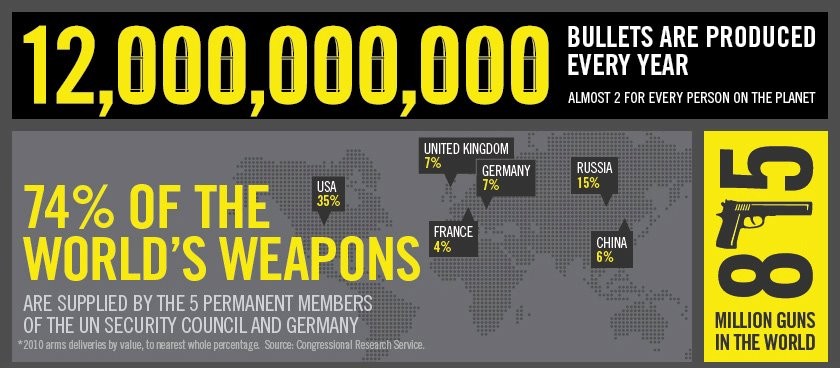This post is part of a special series on the Arms Trade Treaty. From March 18-28, world leaders from more than 150 countries are gathering for the UN Conference on the Arms Trade Treaty (ATT) in New York. An Amnesty International delegation with representatives from every world region is participating and will be pressing leaders to agree to a strong treaty that upholds international human rights law.
By Nate Smith, Arms Trade Treaty Negotiations Observer
Update: THOUSANDS of your calls have been pouring into the White House since Monday. Thank you and keep it up! Apparently, we’re partially responsible for jamming up White House lines, so please try this new number in case you’re having trouble getting through: 202-456-1414…24 hours left – let them hear you!
Late on Friday, the latest draft of the Arms Trade Treaty was shared publicly. It’s not looking good.
Here’s what it boils down to: Will world leaders take the necessary steps now to prevent sending weapons to countries where they will likely be used for torture, summary executions, and other human rights abuses? Or will they allow business as usual and wait until even more staggering numbers of civilians have been killed until they finally decide to stop arms shipments to those who are targeting civilians?
The second option is called the “body bag” approach. The US government is among those who actually think this is a good idea. It wants to allow critical human rights protections to be kept out of the treaty. These would require countries to exercise some due diligence in making sure they aren’t transferring weapons to places where they know they’ll be used in extrajudicial executions, disappearances, or torture – a global “background check” for arms transfers
We need you to pick up the phone now – and we mean right now. We’ve only got until Wednesday before the treaty will be finalized. Your phone call to the White House is the best way to express the urgency and importance of this message. Call 202-456-1111 or 202-456-1414 and deliver this message to President Obama:
We need a strong – and preventative – Arms Trade Treaty!
REMEMBER: To call, you don’t have to be an Arms Trade Treaty expert. You just have to care about protecting people worldwide against gun violence. And be sure to tell us how your call went, so that we can follow up.
You may recall that last year, the US backed out of Arms Trade Treaty negotiations at the last minute. In the time that has passed since, nearly half a million men, women and children have lost their lives to gun violence. We can’t let the US or any other country stand in the way of a strong Arms Trade Treaty again. Too many lives are at risk.
We need the US to fight for a bullet-proof Arms Trade Treaty. Please, every action counts – pick up the phone, send a message online or add your name to our petition on Twitter.
Nate Smith is Chairperson of the Military, Security and Police Transfers Coordination Group at Amnesty International USA

The US is the world’s biggest ever terrorist state. How do we prevent them getting arms when they have so many already, have so many made there and have so many of its citizens armed? There are nutters everywhere, but in the US they carry guns, or are in politics.
Good luck with your project.
I read all the article, Your thinking is really great thanks for sharing with us your post. If you have more ideas against guns please update us.
Statistics and numbers presented to us are usually misleading, but these are still pretty impressive and scary
There is no question about it: no one should be sending weapons to countries with conflicts. There is no possible way of knowing what they will be used for.